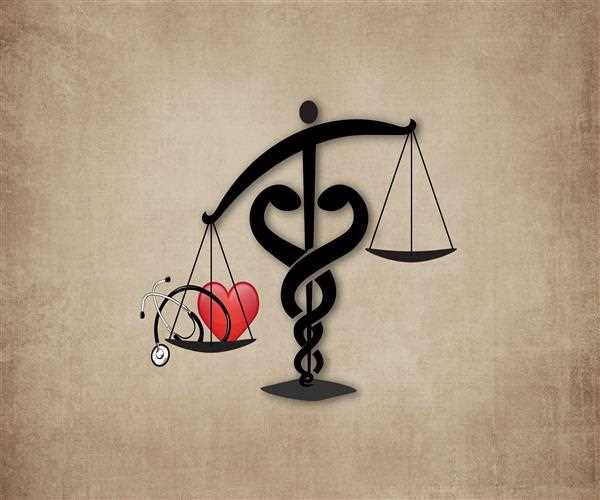
29-Jul-2023 , Updated on 7/29/2023 8:18:08 AM
What healthcare issues are there in USA
Highlights
- Lack of Universal Healthcare- The U.S. is one of the few developed countries without a universal healthcare system, leaving millions uninsured or underinsured.
- High Healthcare Costs- Medical expenses in the U.S. are significantly higher compared to other nations, leading to financial burden for many individuals and families.
- Healthcare Inequality- Disparities in access to quality healthcare exist among different racial, ethnic, and socioeconomic groups, leading to unequal health outcomes.
- Chronic Disease Epidemic- Increasing rates of chronic conditions like obesity, diabetes, and heart disease contribute to the overall healthcare burden.
- Mental Health Crisis- Mental health issues are prevalent, yet access to mental health services and stigma surrounding mental health remain significant challenges.
- Opioid Epidemic- The U.S. has been facing a serious opioid crisis, with widespread misuse of prescription opioids and illicit drugs.
- Healthcare Workforce Shortage- There's a shortage of healthcare professionals, particularly in rural areas, affecting access to care.
The United States, despite being one of the wealthiest and most developed countries in the world, faces a complex and multifaceted array of healthcare issues. The nation's healthcare system has been a subject of scrutiny and debate for decades, with ongoing challenges impacting the accessibility, affordability, and quality of healthcare services.
Let's explore some of the key healthcare issues in the United States, highlighting their causes, consequences, and potential solutions to build a healthier future for all Americans.
Healthcare Access Disparities
One of the most pressing healthcare issues in the United States is the glaring disparity in access to medical care. Millions of Americans remain uninsured or underinsured, making it difficult for them to afford necessary treatments and preventive services. The Affordable Care Act (ACA), implemented in 2010, aimed to address this problem by expanding Medicaid and creating health insurance marketplaces. However, its efficacy has been challenged, and some states have not fully embraced its provisions.
Rural communities, in particular, suffer from limited healthcare access due to a shortage of medical facilities and professionals. Patients in these areas often have to travel long distances to receive essential care, leading to delays in diagnosis and treatment, which can have severe consequences for their health.
Rising Healthcare Costs
The escalating cost of healthcare in the United States is a major concern for individuals, businesses, and the government alike. The high price of medical services, prescription drugs, and health insurance premiums can place a significant financial burden on families, contributing to medical debt and bankruptcy. Even those with insurance may encounter substantial out-of-pocket expenses and limited coverage for certain treatments.
A major factor behind these rising costs is the inefficiency of the healthcare system. Administrative expenses, unnecessary tests, and fragmented care lead to wasteful spending. Furthermore, the emphasis on a fee-for-service model incentivizes volume over value, driving up costs without necessarily improving patient outcomes.
Chronic Disease Epidemic
The United States is grappling with an epidemic of chronic diseases, such as diabetes, heart disease, obesity, and hypertension. These conditions are not only a significant burden on public health but also strain healthcare resources and drive up costs. Lifestyle factors, including poor diet, sedentary lifestyles, and stress, are major contributors to the rise of chronic diseases.
Addressing this issue requires a comprehensive approach, including greater emphasis on preventive care, public health campaigns, and incentivizing healthier behaviors. Investing in programs that promote healthy eating, physical activity, and stress management can help reduce the prevalence of chronic diseases and their associated healthcare costs.

Mental Health Crisis
Mental health remains a critical yet often overlooked aspect of overall well-being. In the United States, mental health disorders affect millions of people, ranging from anxiety and depression to more severe conditions like schizophrenia. Unfortunately, the stigma surrounding mental health issues often prevents individuals from seeking help, leading to untreated conditions and potential long-term consequences.
Insufficient access to mental health services exacerbates the problem. Mental health providers are often in short supply, particularly in underserved areas. Integrating mental health services into primary care settings and expanding telehealth options can help bridge the gap and improve mental healthcare accessibility.
Substance Abuse and Opioid Epidemic
The United States has been grappling with a devastating opioid epidemic, leading to a surge in overdose deaths and straining emergency services and treatment facilities. Addressing substance abuse requires a multi-faceted approach that includes prevention, treatment, and support for individuals in recovery.
Increased funding for addiction treatment programs, better prescription monitoring systems, and public education campaigns to raise awareness about the dangers of opioids are essential steps in combating this crisis. Additionally, addressing the social determinants of substance abuse, such as poverty and unemployment, can help reduce the vulnerability to addiction.
Health Disparities and Inequities
Health disparities persist across various demographics in the United States, with minority populations experiencing worse health outcomes compared to their white counterparts. Factors such as racial discrimination, socio-economic status, and lack of access to quality healthcare contribute to these disparities.

To address health inequities, there must be a focus on improving healthcare access and quality in underserved communities. Culturally competent care and efforts to diversify the healthcare workforce can also lead to better patient outcomes for marginalized populations.
Healthcare Fragmentation
The U.S. healthcare system is highly fragmented, with various providers, insurers, and government programs operating independently. This fragmentation can lead to inefficiencies, communication gaps, and unnecessary duplication of services, hindering the continuity of care for patients.
Moving towards a more integrated and coordinated healthcare model can streamline processes, reduce administrative burdens, and improve patient care. Health information exchange systems and accountable care organizations are examples of initiatives that aim to promote better collaboration among healthcare providers.
The healthcare issues in the United States are complex and intertwined, posing significant challenges to the nation's well-being. However, by acknowledging and addressing these challenges, there is an opportunity to create a more equitable, efficient, and accessible healthcare system for all Americans.
Solutions lie in a combination of policy changes, investment in preventive care, increased emphasis on mental health, addressing social determinants of health, and promoting a shift towards value-based care. With collaborative efforts from policymakers, healthcare professionals, and communities, the United States can pave the way for a healthier and more prosperous future.

SEO and Content Writer
I am Drishan vig. I used to write blogs, articles, and stories in a way that entices the audience. I assure you that consistency, style, and tone must be met while writing the content. Working with the clients like bfc, varthana, ITC hotels, indusind, mumpa, mollydolly etc. has made me realized that writing content is not enough but doing seo is the first thing for it.
Join Our Newsletter
Subscribe to our newsletter to receive emails about new views posts, releases and updates.
Copyright 2010 - 2026 MindStick Software Pvt. Ltd. All Rights Reserved Privacy Policy | Terms & Conditions | Cookie Policy